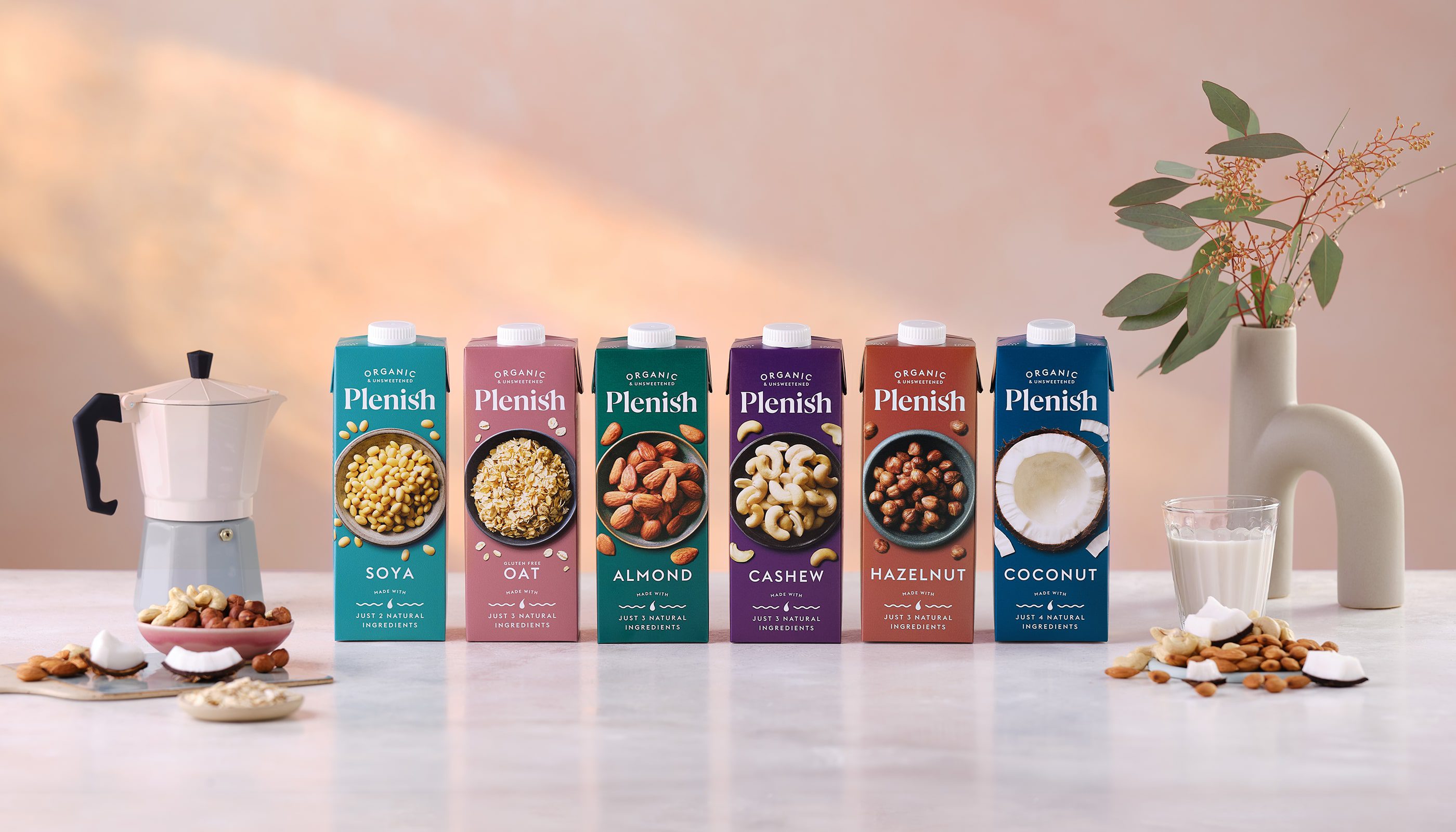6 ingredients you should avoid in plant-based milks
Diary consumption (or lack thereof) is one of the biggest drivers of a shift from animal products, with leading market researchers, Ipsos finding that in 2022, 48% of Brits use plant-based m*lk alternatives in their diet.
But not all plant-based m*lks are made equal, with some containing nasty additives that aren’t good for you, despite what the marketing says.
Just like cow’s milk, which contains added hormones and antibiotics that are bad for you, plant-based m*lks can also be bad if they contain emulsifiers, carrageenan, added sugars and other additives.
No matter if you prefer cashew, coconut, oat, almond, hazelnut or soya m*lk, there are healthy options on the market. You just need to spend a couple of extra minutes reading the label to ensure you’re purchasing the healthiest option.

Avoid plant-based m*lks that contain the following ingredients:
1. Genetically modified oils
It’s actually quite common for seed and nut m*lks to contain oils such as corn, soybean, sunflower seed, safflower, canola and rapeseed (very similar to canola), as they help thicken the consistency. While they are generally safe, some people may experience an upset stomach, depending on how much they consume. The vegetables which the oils are extracted from are commonly sprayed with pesticides and genetically modified organisms (GMOs), meaning they’re not the cleanest of ingredients.
2. Emulsifiers and gums
Manufacturers use thickening agents to give plant-based m*lks a similar texture to dairy milk but this can cause digestive issues. The most popular emulsifiers in plant-based m*lks are xanthan gum and guar gum. Xanthan gum can cause digestive discomfort, has been linked to weight gain and can increase the risk of colitis and other intestinal disorders. Guar gum is made from a bean plant and is highly processed, making it difficult to digest.
3. Evaporated cane juice, cane sugar or cane syrup
Cane is code for sugar, so while it may help with the taste, it’s not the healthiest additive and should be avoided. Cane sugar is devoid of nutrients and is 99% sucrose which is pure sugar. This harms blood sugar and overall health and can be swapped out for healthier alternatives such as stevia, raw agave syrup or grade A maple syrup. Or you could opt for the non-sweetened version of plant-based m*lks, as this will always be the healthiest option.
4. Natural flavours and natural colours
Unfortunately, there’s nothing natural about natural flavouring added to plant-based m*lks. Natural flavours can indicate artificial sweeteners or forms of monosodium glutamate (MSG), so they’re generally used to enhance the base taste of plant-based m*lks, such as almond, oat or soya. While natural flavours are said to be safe for human consumption, they’re not necessarily ‘natural’ as they can be synthetically enhanced with preservatives and other ingredients leading to allergies, headaches and other health issues.
5. Vitamin D2
The body naturally produces vitamin D3 after exposure to the sun which is necessary for optimal health. The same cannot be said about the synthetic version, vitamin D2, an isolated form of natural vitamin D that the body cannot properly absorb.
6. Carrageenan
Carrageenan comes from red seaweed, and it’s used as a thickener, emulsifier or stabiliser. There’s been some controversy around the health benefits of carrageenan with potential side effects such as chronic inflammation, irritable bowel syndrome, and other gastrointestinal problems. However, it’s worth noting that most of the studies that have been carried out have been on animals and not humans. Avoiding this ingredient is probably best if you are prone to these gastrointestinal issues.
Ultimately, you should pay attention and go for products with a simple ingredient list to avoid unwanted side effects.
At Plenish, all of our plant-based m*lks are vegan, made with organic ingredients and contain just three simple ingredients.